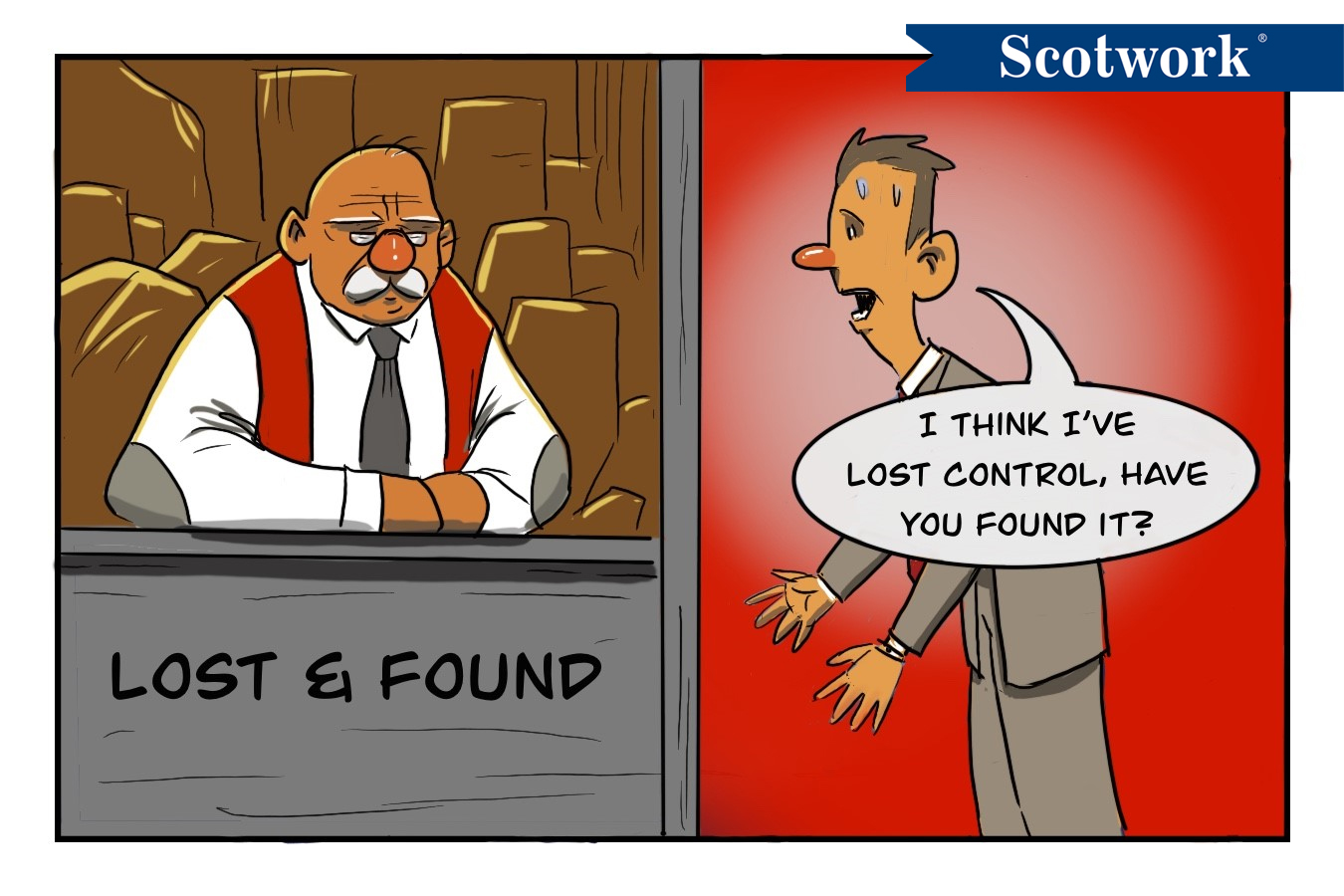Have you ever lost control of an important situation? I have, and I hate it. When something is meaningful to me, my emotions take over: I can get angry, myopic, and hypercompetitive. I lose control of my ability to calmly and rationally find a way through it.
In my previous professional life, I worked with a client that we were excited to bring on. After winning the business and signing the contracts, our client asked to change the scope, only they didn’t think it was a change in scope: They believed their ask was within scope, and we believed it wasn’t. This set me and the client on a collision course that would determine the future of our relationship.
We both had what we felt were legitimate rationales. My company didn’t want to eat the additional costs associated with the scope change, particularly after discounting our price to help them come in under budget. Meanwhile, it seemed my client made promises to their internal stakeholders about the contract, and any changes would force them into uncomfortable conversations to save face. So, we both found it easier to argue, and every time we made our argument, the other side dug their heels in further.
And the more we argued, the more emotional I became. I got wrapped up in trying to prove a point because I felt I was in the right . . . and I wanted them to know I was right. (That should’ve been the first sign that I’d lost control.)
I got to the point where I was ready to resign from the business and move on. But in a moment of frustration (and dumb luck), I proposed that we each cover a portion of the fees. While they rejected the suggested amounts, it gave us a framework to find a suitable solution, which we eventually did.
When I reflect on that experience, I realize that, had either of us considered the importance of finding a solution over being right, we could’ve helped each other through the situation, minus the emotion. Here are 3 things that would’ve enabled that type of thought — and given me a greater sense of control:
Take a buddy who’s not tied to the outcome. I should’ve had someone with me to act as my unemotional buffer, but not someone who would’ve been impacted by the outcome, since they may have had difficulty being objective. In those moments, I need a support buddy who can ask questions, rephrase something, or even call for a break — anything that gives me time to maintain my composure and get it back under control.
Walk away from the conversation but not the conflict. I tend to deal with conflict in the moment, as opposed to letting things fester or go unsaid. For some situations, that’s good; for others, it’s absolutely not. When I’m triggered, it’s best to walk away, as it helps me calm down and see things more clearly. Similarly, it can be best for the other side to take some time before getting into it so that they can gather their thoughts and emotions.
Make sure the other side knows you understand them. Emotions can be triggered when either side doesn’t acknowledge the other side — not just the words they said, but the meaning behind them, the implications of the situation, and the general stated understanding of their point of view. Remember, understanding doesn’t necessarily mean agreement, but it can be a foundation upon which to move forward.
Had any or all of these things been brought into that conversation, we could’ve avoided a lot of triggered emotions and better stayed in control. Since then, I rarely lose control. The trick, for me, is recognizing my triggers and adapting as necessary. Easier said than done, I know!
We Can Help You Handle Emotionally Charged Negotiations.
When your team’s talks become emotionally heated, we can help! Draw on Scotwork’s nearly 50 years of real-world negotiating experience to get better deals, save time, and create value that preserves and strengthens relationships. Partner with one of our advisers to ensure you have the optimum view of your deal.

